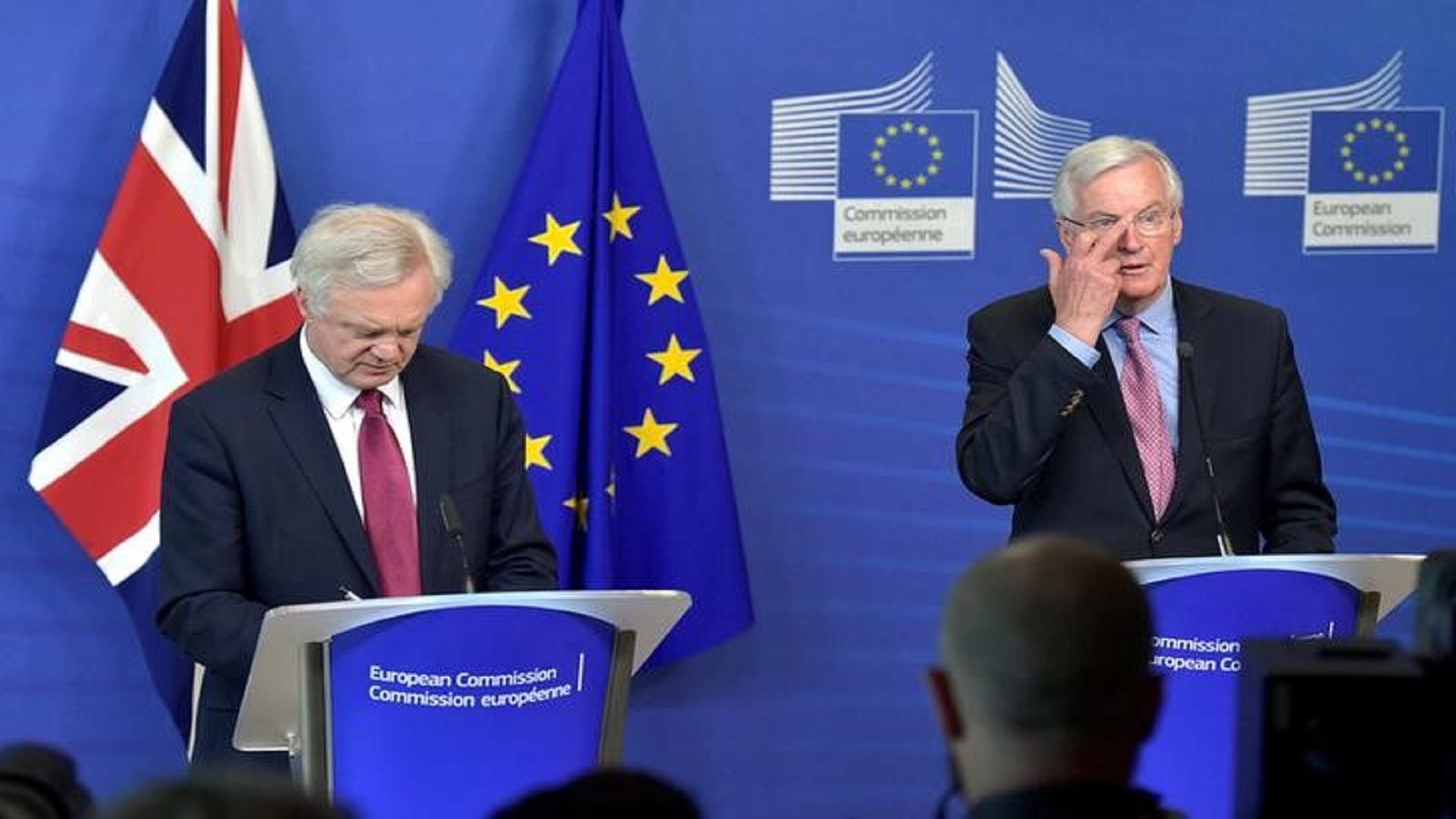Image: The European Union’s chief Brexit negotiator Michael Barnier (R) welcomes Britain’s Secretary of State for Exiting the European Union David Davis at the European Commission ahead of their first day of talks in Brussels, Belgium, June 19, 2017. REUTERS/Eric Vidal
![]()
By Alastair Macdonald and Elizabeth Piper
BRUSSELS (Reuters) – The British and EU Brexit negotiators agreed how to organise talks on Britain’s divorce at a first meeting in Brussels on Monday, where both sides stressed goodwill but also the huge complexity and tight deadline.
“We’ve laid solid foundations for future discussions and an ambitious but achievable timetable,” said David Davis, Britain’s Brexit minister, adding he was “encouraged” by the first talks. But the European Union’s Michel Barnier made clear little was agreed but an initial calendar and a structure for negotiations.
The talks began almost a year to the day after Britain shocked Europe by voting to cut loose from the 28-nation EU, its biggest market.
They also come three months after Prime Minister Theresa May locked Britain into a two-year countdown to Brexit in March 2019. Perhaps more important, they begin just 10 days after a humbling election setback revived divisions within May’s government on what kind of relationship it wants with the EU.
Davis brushed off a suggestion that a weakened Conservative government had dropped objections to a Brussels timetable, which would deal first with EU priorities, including its demand Britain settle a “Brexit bill”, and leave the talks on free trade that May wants until at least late this year.
Davis insisted that talks about trade would occur “in parallel”, but Barnier said they would start only in a second phase. First, “significant progress” would need to be made on the EU’s priority issues, notably the rights of expatriate citizens and a settling financial accounts. An EU official said Britain still refused to accept it would owe Brussels anything.
EU officials believe, however, that May and her ministers are coming round to accepting Brussels’ rules. For one thing, renewed debate in her cabinet on how far to go with her clean break from the single market and customs union has made it hard to present a coherent set of demands in Brussels.
Uncertainty over the future trading relationship also means that special status in the talks has been given to discussions on how to limit the impact on peace in Northern Ireland from the creation of a new EU-UK border with the Irish Republic.
IRELAND – A SPECIAL CASE
Three negotiating groups will address agreed priorities on citizens’ rights, finances and other technical matters which must be resolved to avoid a messy limbo after Brexit. The Irish issue, long described as a priority for both, will be treated somewhat differently; avoiding a “hard border” will necessarily have to take account of how the rest of EU-UK trade will work.
Though less visibly upbeat than veteran Brexit campaigner Davis, Barnier insisted the two sides would work together for a “fair deal” that would not “punish” Britain. But he also refused to discuss concessions to Britons who, in the eyes of most EU leaders, are committing an act of self-harm.
“It is the United Kingdom that’s leaving the European Union, not the other way around,” Barnier said sharply, speaking of “unravelling” 44 years of relations. “Everyone must accept their responsibilities, the consequences of their decisions … So my mind is not on making concessions or asking for concessions.”
May herself will be in Brussels on Thursday and Friday for a regular summit with fellow EU leaders. Davis said she will tell them about plans to guarantee rights for some 3 million EU citizens in Britain under a proposal to be made next week.
As with Monday’s seven hours of meetings between Barnier, Davis and their teams, her emphasis is expected to be on easing tensions that have seen some spiky exchanges in recent months.
Davis and Barnier, who chatted in English over lunch but used interpreters for some of their more serious talks, made use of their shared love of hill-walking to lighten the mood.
They exchanged gifts — a walking stick from Barnier’s native Alps for Davis, a French mountaineer’s memoir in a valuable first edition from the Briton to the Frenchman.
And at a final news conference they traded quotes from their respective nations’ history: Barnier cited EU founding father Jean Monnet to say: “I am neither optimistic nor pessimistic. I am determined.” Davis channelled Winston Churchill: “The pessimist see difficulty in every opportunity, the optimist sees opportunity in every difficulty. And so bridging between Churchill and Monnet, I am certainly a determined optimist.”
(Additional reporting by Gabriela Baczynska, Jan Strupczewski and Charlotte Steenackers, editing by Larry King)
Copyright 2017 Thomson Reuters. Click for Restrictions.


